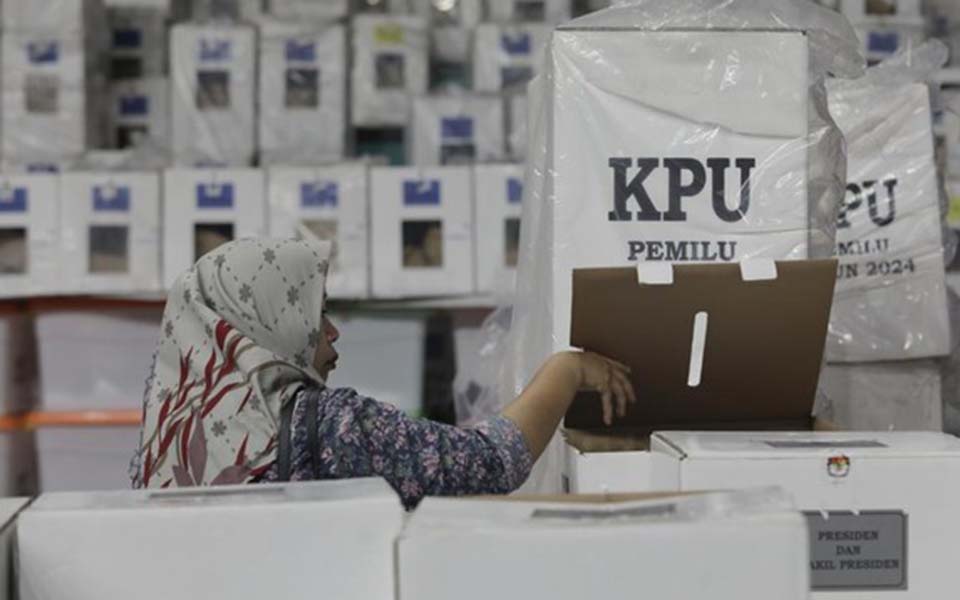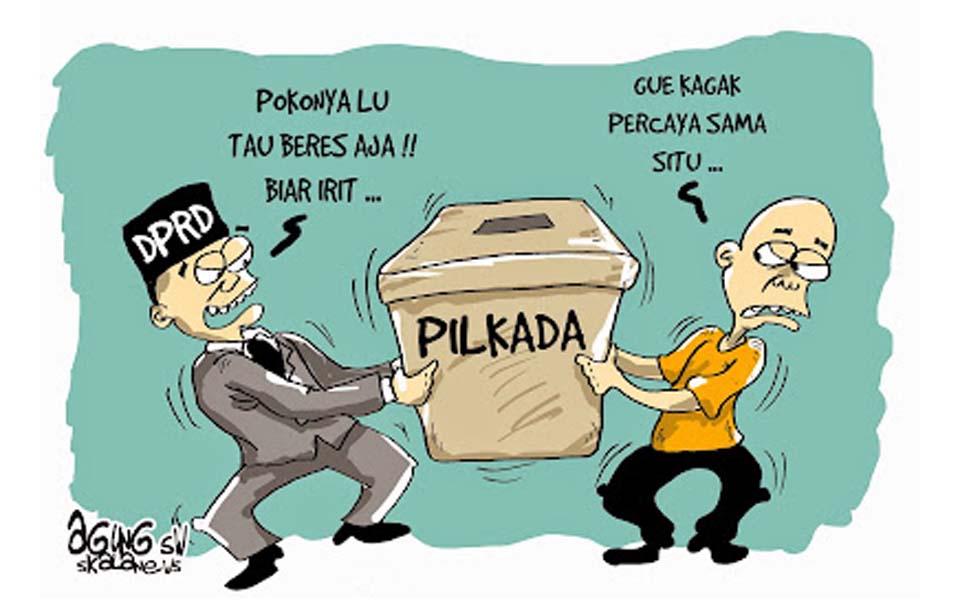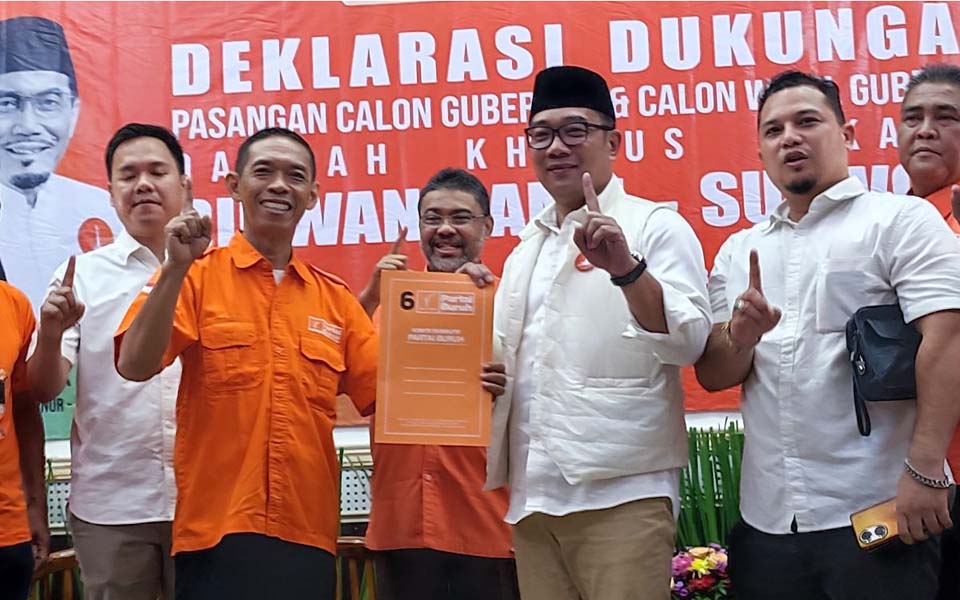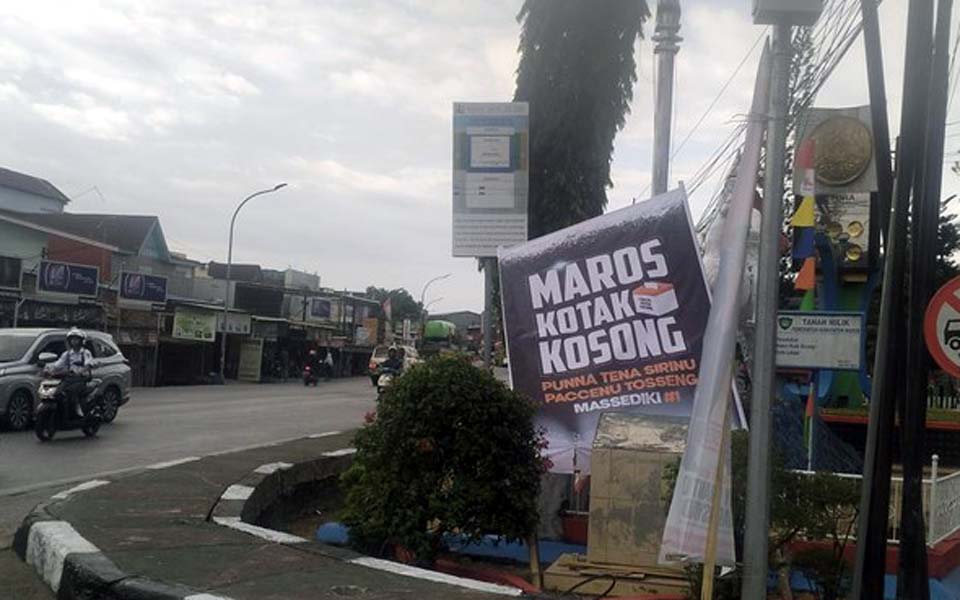Jakarta – The number of people that did not use their right to vote or golput in the 2024 election of regional heads (Pilkada) was fairly high. In a number of regions, the number of votes for those that won elections was far less than the golput figure.
One of these was in Jakarta province (DKI). The coordinator of the Ridwan Kamil-Suswono (RIDO) election campaign team, Ramdan Alamsyah, was embarrassed to see the high level of golput in the Jakarta gubernatorial election (Pilgub).
He even considers that the election was won by golput because of the high numbers. According to Alamsyah, no candidate pair (Paslon) actually won the election.
In Jakarta the three competing electoral tickets were Ridwan Kamil-Suswono, Dharma Pongrekun-Kun Wardana and Pramono Anung-Rano Karno. The Pram-Rano ticket was recorded as being victorious with 50.07 percent of the valid vote.
"(Paslon) 01 won? No! 03 won? No! 02 won? No! All the contestants lost, the one that won was golput", said Alamsyah in Central Jakarta on Sunday December 8.
The golput figure in the 2024 Jakarta election reached 3,489,614 people or 42.48 percent of the Fixed Voter List (DPT). While in the 2017 Jakarta gubernatorial election, the golput figure was only 1,654,854 or around 22.9 percent of the 7,218,272 eligible voters.
Then in the North Sumatra the golput figure reached 50.68 percent. Voter participation in 2024 North Sumatra gubernatorial election was only 5,312,561 people out of a DPT of 10,771,496 people.
East Java also contributed a significant golput figure of 34.67 percent of the total DPT of 31,280,418 people.
General Elections Commission (KPU) member August Mellaz said on November 29 that according to preliminary KPU data, the level of voter participation in the 2024 simultaneous regional elections nationally was below 70 percent.
Meanwhile in the simultaneous presidential election (Pilpres) and legislative elections (Pileg) held on February 14, the level of voter participation reached 81.78 percent.
Fed up with elections
Indonesian Survey Institute (LSI) Denny JA researcher Adjie Alfaraby says that there are several causes for the high average golput rate in the 2024 regional elections. First, said Alfaraby, there is pubic fatigue and boredom in the face of two elections in the same year.
"The people have just finished going through the national election process, which expended a lot of energy. The factors of fatigue and boredom were a factor", Alfaraby told CNN Indonesia on Tuesday December 10.
The second factor is that voters are increasingly apathetic towards the election of regional heads. This is because the candidates competing in some regions were less attractive and competitive in the eyes of the people. Alfaraby sees this phenomenon has occurring in the Jakarta and North Sumatra elections. As a result, people are reluctant to use their right to vote.
Alfaraby also sees that there is political apathy because people believe that no matter who is elected, it will not change their fortunes much. Communities in the regions, he continued, also consider that it is more important to vote for national leaders because they are considered to have more of an effect on their lives than local leaders.
"Because there are many national policies that have a direct impact such as the Indonesia Healthy Card, the Smart Indonesia Card, fuel policies and so on", he said.
In line with Alfaraby, Paramadina University political observer Arif Susanto says that most people were tired because national elections were held in the same year as regional elections.
"So, people were embarrassed with politics, that other social activities also experience a fatigue with politics", said Susanto when contacted by CNN Indonesia.
Susanto also believes that people were antipathic towards candidates for buying up support from all the political parties leaving no other alternatives. This situation resulted in the emergence of sole candidates or candidates that were bought up by the coalition of political parties supporting President Prabowo Subianto's Indonesian Onward Coalition (KIM) Plus.
"It's clear that the alternatives available were inadequate for many people", he said.
No influence on result, but minimal legitimacy
Susanto said that in formal terms the golput wins in several regions will not annul the results of the elections because under the law on regional elections there are no regulations on high golput rates being able to annul the election result.
However, he sees that the high golput figure could minimise the legitimacy of elected leaders in the eyes of the electorate.
"But if you question the legitimacy, yes of course it affects the legitimacy. Starting from the candidates to the one that's elected", Susanto said.
Susanto also said that voters who decided to golput could not be prosecuted because this is a person's right. However, he said that if someone mobilises other people to golput or directs voters to choose another candidate using money politics they can be subject to legal sanctions.
Susanto also sees that other countries with more mature democracies that tend to have the freedom to vote have also experienced a decline in voter participation.
However, despite the low voter participation rate in elections, people in these countries are very active in participating in politics outside of the actual election.
"Is the decline in the participation rate in elections followed by a decrease in or increasing political participation outside the elections? If political participation outside the election has increased, this means, yes, that perhaps this is a symptom of the increasing quality of participation", he said. (rzr/tsa)
Notes
Golput (Golongan Putih) or White Group is a term that first emerged as a campaign by students in the 1971 elections and derives its name from marking the white section of the ballot paper rather than a party symbol or candidate's picture thereby making the vote invalid. In recent years the term has broadened to include not just intentionally casting an invalid vote but also vote abstention.
[Translated by James Balowski. The original title of the article was "Fenomena Golput Pilkada 2024 dan Potensi Krisis Legitimasi".]















